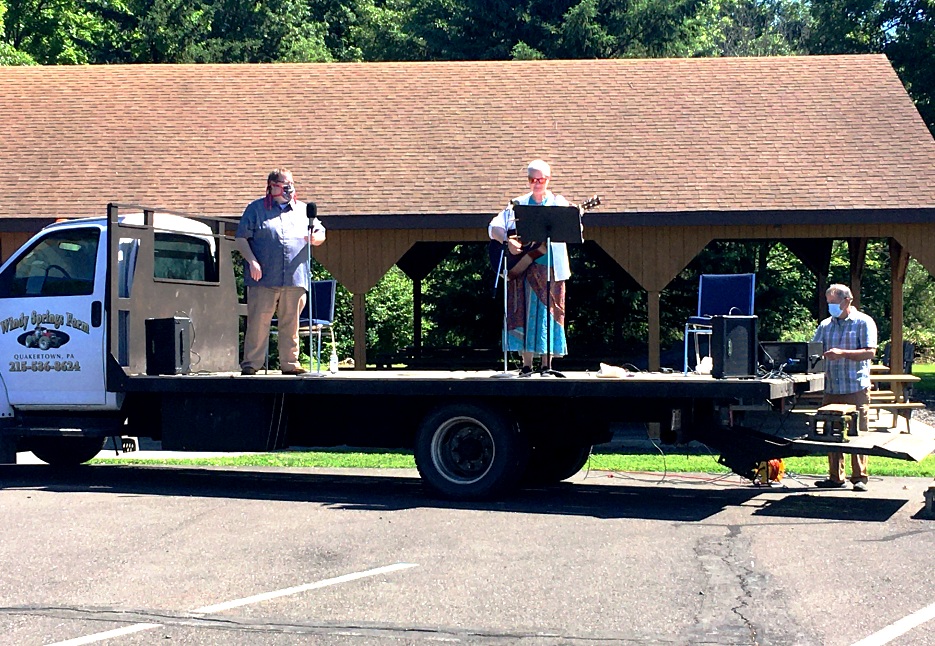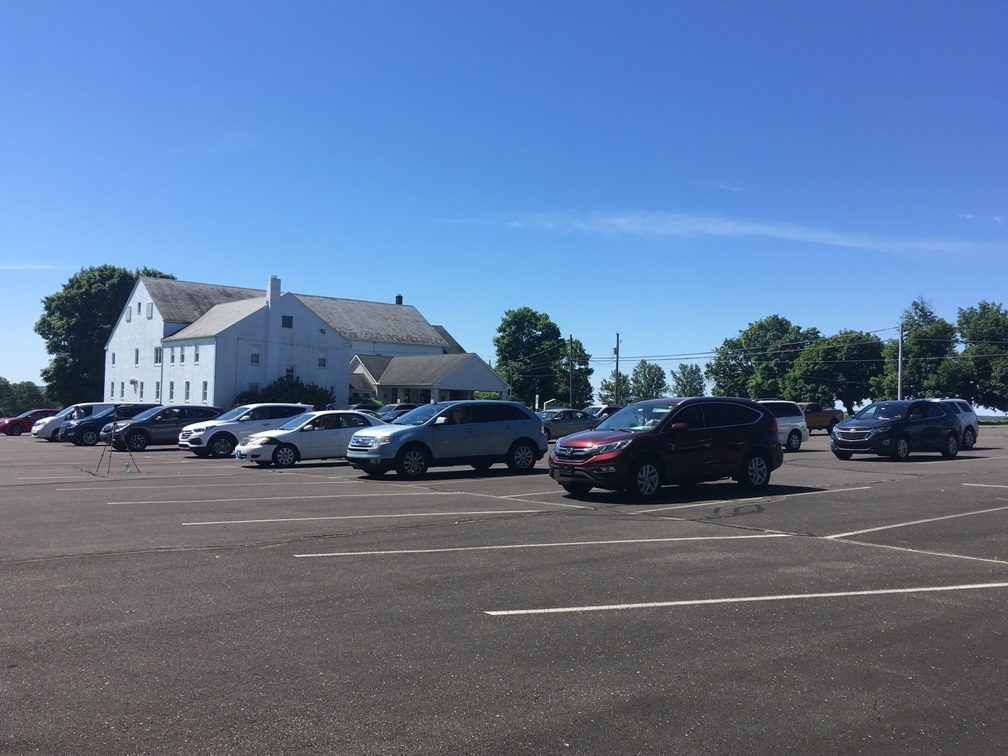by Sue Conrad Howes, West Swamp congregation

In March 2020, many churches were struggling with the need to close their doors for Sunday worship due to COVID-19. Now, three months later, some churches are struggling again: When and how do we begin to gather for corporate worship while still caring for the physical health of our congregation? Churches throughout the conference are trying a variety of approaches.
Some, typically smaller, congregations have begun worshiping in their church buildings while taking precautions. Wellspring Church of Skippack (PA) is gathering in person, but with written instructions to participants encouraging physical distancing and other guidelines. Offering is collected in plates at the exits, bulletin announcements are sent via email so there are no handouts, and hand sanitizer and masks are available to all. Persons who use the restrooms are asked to wipe down the surfaces after each use.
Mennonite Bible Fellowship (Morris, PA), has been meeting together since May 17. Congregants sit in every other pew, wear masks, and don’t shake hands. Pastor John Brodnicki commented that the “most inconvenient part of this arrangement is singing. It’s difficult to sing with a mask on.” They continue to monitor the number of COVID-19 cases in the area (their county has had relatively few). “If COVID cases were to spike, we may reconsider meeting together until the spike subsides,” Brodnicki added.
Since June 7, Franconia (Telford, PA) congregation has been gathering in its parking lot for worship. Using an outdoor sound system, FM transmitter, and a large LED screen to display the worship leader, musicians, and preacher (who are inside the church sanctuary), congregants sit in socially-distanced lawn chairs or in their cars. “The outdoor service,” according to Pastor Mark Wenger, “has been a great experience. This is the first step of gathering in person.”
Franconia has also utilized the rental of the LED screen to show family-friendly movies on the weekend, including many movie attendees who were not from the congregation. As a result, the church plans to continue offering movies periodically in the future as an opportunity for outreach.

Pastor Beny Krisbianto shared how his congregation, Nations Worship (Philadelphia, PA), held worship in the park on June 14. When 40 people showed up for worship, church leaders decided to divide the group into two, as area restrictions limited gatherings to 25 people. Congregants wore masks and practiced social distancing while older members were encouraged to stay at home and participate virtually.
Some congregations are holding two services to limit the numbers in attendance. Perkiomenville (PA) congregation set up chairs in the worship space for appropriate distancing. They implemented a limit of 80 people per service and masks are expected for all who attend.
Meanwhile, Methacton congregation (Norristown, PA) has decided to wait until their county goes “green” before even considering meeting in person in any form. According to Pastor Sandy Drescher-Lehman, “We don’t have a plan yet for how to re-open since so much changes all the time.” Meanwhile, Methacton’s worship services are emailed to the congregation on Saturday afternoons, inviting people to worship on their own time. For Methacton, the question now is, “How much do we need to gather?” says Drescher-Lehman. “We’re still the church,” she reflects. “Sunday mornings are a great celebration that everyone will be happy to have again when the time is right, but I don’t think anyone is drying up spiritually.”

 I grew up as a “missionary kid” in Ethiopia, attending boarding school through grade five. I cannot recall a time when spiritual concerns and values were not part of the landscape of my life and the air that I breathed.
I grew up as a “missionary kid” in Ethiopia, attending boarding school through grade five. I cannot recall a time when spiritual concerns and values were not part of the landscape of my life and the air that I breathed.




